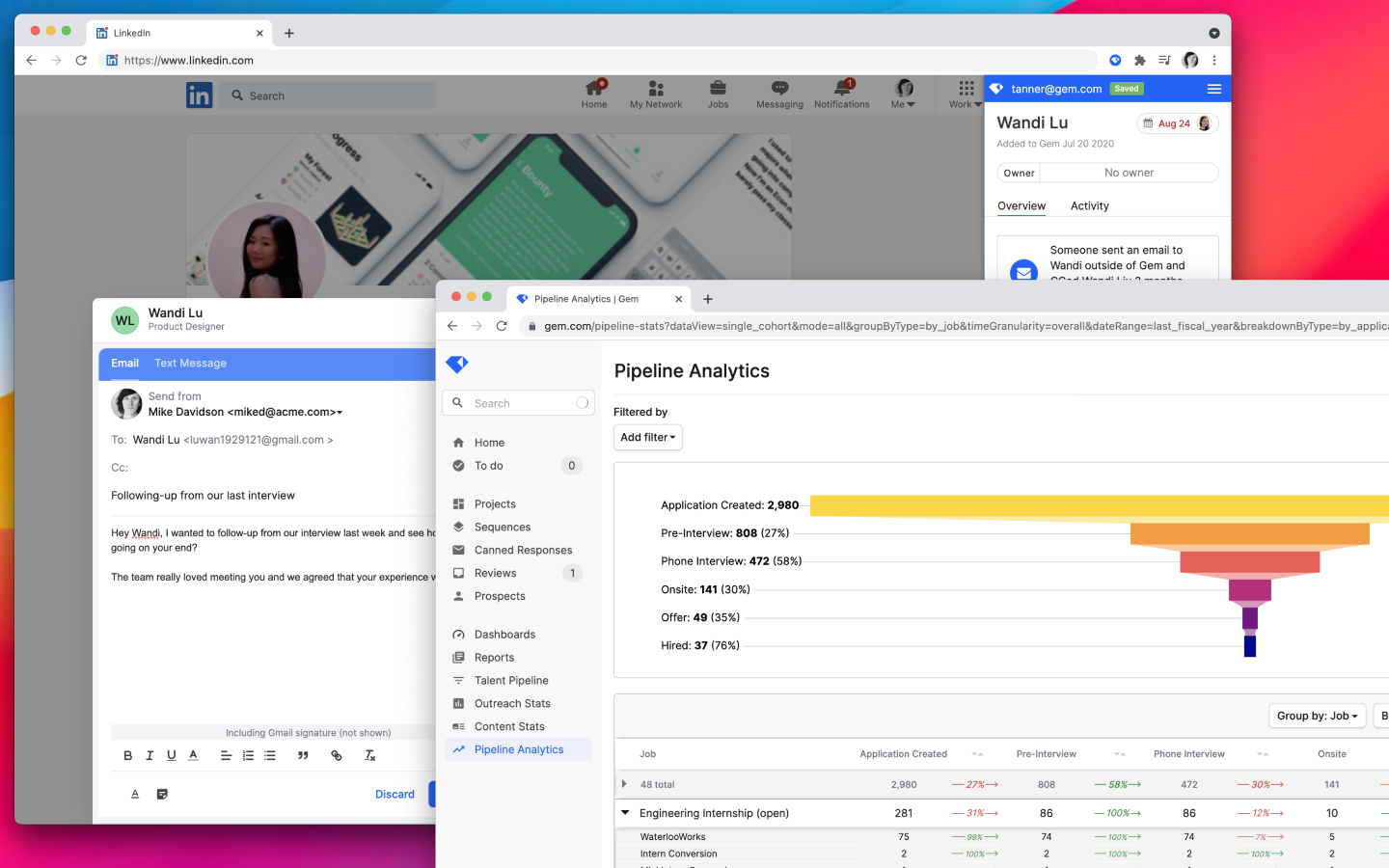Steve Bartel saw for himself how important hiring is. He was among the first hires at Dropbox and acted as hiring manager to grow the company to over 1,000 in less than five years.
He met co-founder Nick Bushak at MIT. Bushak was later at Facebook leading product engineering teams and also had a similar hiring experience there.
They both saw hiring approaches shift from asset-based to knowledge-based and decided to start their own company, Gem, in 2017 to address these changes.
“You used to be able to measure the value of a company by its factories, raw materials and goods, but today, that is measured in people,” Bartel said. “Companies are competing harder than ever for top talent, and our vision is to be ‘Salesforce for hiring.’ ”

Gem dashboard. Image Credits: Gem
Recruiting is considered more like sales and marketing now, and instead of waiting for candidates to apply, companies are being proactive and going after people, he added. In addition, companies are realizing that their inbound application pool of people are not as diverse, equitable or inclusive.
Companies like LinkedIn provide the talent and WorkDay manages and tracks someone to hire, but Gem operates as the link between them, enabling companies to do that proactive hiring: sending hundreds of emails, hosting events, running branded email campaigns and ad spending to engage with talent.
“We help customers hire the people they need up to five times faster,” Bushak said. “By providing the analytics that track the end-to-end process and track diversity, we can identify if there is any bias or drop-off during the interview process.”
On Tuesday, the company announced $100 million in Series C funding at a $1.2 billion valuation to accelerate its growth. The round was led by ICONIQ and included participation from existing investors Greylock and Accel and new investors Sapphire Ventures and Meritech Capital. The new capital brings the company’s total funding to $148 million.
The Series C was about “finding investors we loved,” Bartel said. The company did not need the money, but working with investors like ICONIQ and Sapphire will enable Gem to “double down on growth, expand into more markets and continue on the early success in enterprise as Gem considers international expansion and further product investment,” he added.
Matthew Jacobson, general partner at ICONIQ, said he met Gem through an existing relationship with Greylock while the company was going through its Series B. Jacobson and his team were doing some work on different products and tools in the marketing suite and thought Gem’s approach for managing interactions with candidates and tracking talent was unique.
“They are stellar, humble and super product-oriented,” he said. “When we look at the pain point, the sourcing that Gem enables its customers to do is something that historically, you would have to sign up on Monster.com for and wait for people to come to you. Also, the fact that companies in our portfolio are using Gem is a powerful statement.”
Gem is seeing adoption from large enterprises and is looking at an international expansion in the next year in Western Europe and parts of Asia Pacific. It intends to use the new funding to expand into new markets and on sales and marketing. It has already doubled employees in the first six months of 2021.
Of its more than 800 customers, the company touts over 100 fellow unicorns on that list, including Gusto, Sift and Cockroach Labs. It has tripled its revenue in the last year and doubled its customer base, Bartel said.
